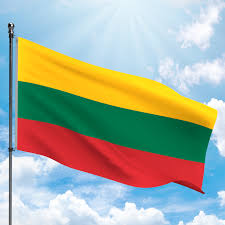The official dialect of Lithuania, a nation in the European Baltic area, is Lithuanian. Despite Lithuania being the major lingo in the nation, there may still be some communication difficulties for those who do not speak it.

Language barrier
These are points to consider while thinking about Lithuania’s language barrier:
English proficiency
You may often find individuals who speak English to some degree in big cities, particularly among younger generations and those employed in the tourist sector. Lithuanians are becoming more fluent in English, especially the younger generation. However, conversing in English with elderly people or in more isolated locations may still be difficult.
Russian language
Due to historical factors, Lithuania also has a sizable Russian-speaking community. Some individuals, especially older generations and those who live in locations with a larger concentration of Russian speakers may be able to understand and speak the dialect. It’s however important to remember that Lithuanian is the official tongue and that not everyone is fluent in Russian.
Linguistic variety
There are many different racial and ethnic minorities in Lithuania, including Poles, Belarusians, Ukrainians, and others. If you don’t speak the native tongues of certain members of these societies, communication may become much more difficult.
Language assistance
Staff employees who are fluent in English or other widely spoken tongues may be found at tourist-oriented locations including hotels, eateries, and tourist attractions. Additionally, you may be able to obtain translation and interpretation services to help you get over dialect hurdles in bigger cities like Vilnius.
Language learning in Lithuania
The framework for teaching Lithuanian to foreign nationals as well as guidelines for the lingo was established in 2021. They also stress the significance of lingo acquisition for immigrants’ and refugees’ integration into society, the educational system, and the job market system.
Projects
The Center for the Development of Qualifications and Vocational Training began a project in August 2020 that would last through December 2022. ‘’Language learning as part of effective social integration’’ was the project’s title. Along with instructors and experts in the Lithuanian dialect, it was directed toward immigrants and refugees. 160 immigrants and refugees have taken Lithuanian dialect classes by the end of 2020. Sixty lingo instructors took part in a methodological workshop that introduced techniques for developing and conducting training programs. The major goal of this initiative was to make Lithuanian dialect instruction available to people from other countries so they could more readily integrate into the educational and employment systems.
Language learning options in Lithuania
Learning the country’s dialect might be difficult, but it is worthwhile if one plans to remain in Lithuania for an extended period. The majority of the institutes that provide Lithuanian lingo classes are in Vilnius. Lingua Lithuania, a dialect and cultural institution, offers a variety of courses for visitors at all levels of language ability, including groups, individual lessons, and online courses. Vilnius University provides courses for students at various levels of lingo competence. All classes are taught in Lithuanian, except those for beginning students that include explanations in English. Beginner pricing begins at 300€ for three months. SPEAK offers lingo instruction and resources, and lingo groups may be found both online and offline in Vilnius or Kaunas. Lithuanian is categorized as a level III language by the Foreign Service Institute, which means it will take an average student at least 1100 hours to become proficient. A few days in the dialect class will be sufficient to acquire common tourist conversation lingo. One to three years should be given to thoroughly grasp written and spoken Lithuanian and five to seven years should be permitted to reach an academic level.
You may also find these articles helpful
Moving to Lithuania: Full relocation guide
Working in Lithuania as an expat
How to retire in Lithuania: the golden years



